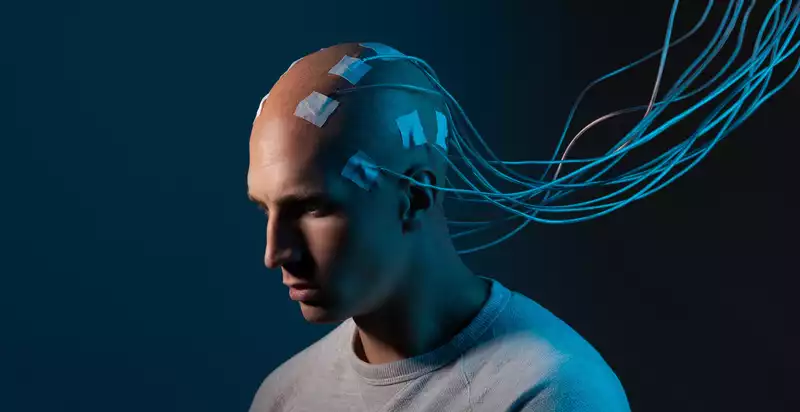The PS5's dual-sense controller may feature next-generation haptics, but the future of game control may literally be in our heads.
At least that's what Gabe Newell, president and co-founder of gaming giant Valve, believes, touting the possibility that brain-computer interfaces (BCI) could bring about the future of game control and more. And Valve is working to make powerful BCI technology a reality.
In an interview with 1 News (flagged by The Verge), Newell said that while many of Valve's product designs sound "like science fiction," BCI technology could provide a better way to experience games and digital environments.
Citing the science fiction film "The Matrix" as an example, Newell said that BCI can be used effectively to create experiences in the mind that, when compared to the real world, "seem colorless and hazy compared to the experiences people can create in their brains." He then went on to describe how one can effectively edit one's mood and decide who they want to be in their experience with BCI.
All of this sounds like navel-gazing technical speculation. But Valve is actually working with OpenBCI, an open source community dedicated to creating BCI software and tools to help developers better understand the signals coming from the human brain.
"We are working on an open source project so that anyone can incorporate high-resolution [BCI] reading technology into their headsets," Newell explains.
How exactly this will translate into games is difficult to predict. However, as developers become better able to interpret brain signals, they will be able to dynamically modify what is happening in the game. For example, if brain signals indicate that a player is losing attention, they could increase the number of enemies thrown at the player. Or it could allow for more subtle control over the game, allowing the player to trigger effects without having to press a button, allowing the player to do more things at once.
Peripherals that convert brain signals into game controls already exist, but they are somewhat rudimentary. They are also limited in scope, as Newell sees BCIs as a means to extend people's lives beyond gaming.
For example, Newell explained that with the BCI, one could effectively program a person to fall asleep during a long-haul flight, for example. That way, you would wake up with a circadian rhythm appropriate for the time zone you are in.
This may sound strange, but Newell noted that it could replace the need to take sleeping pills or fluff pillows in a particular way.
Newell said that developers of virtual reality headsets who are not at least considering BCI applications are doing it wrong. And he predicted that software developers working on interactive experiences will "absolutely use" VR headsets modified for BCI in some way in the near future.
That doesn't mean that consumer-grade BCI-equipped VR headsets will be available anytime soon. But Valve hopes to at least get the right tools and technology into the hands of software developers and provide a platform for building BCI experiences.
Various sci-fi films and works like "Cyberpunk 2077" have made the whole idea of brain interfaces and augmentation especially scary to be hacked. Newell admits that BCI is a concept that makes people uneasy.
However, he cited laser eye surgery as an example, saying that it is something that many people initially shy away from. However, people quickly got used to it, and now LASIK treatments are commonplace. [Newell said that a good experience with BCI technology and applications builds trust in BCI. Just as cell phone use, once considered an invasion of privacy, is now commonplace.
However, this does not mean that people will soon be able to control the PS5 or Xbox Series X with their own minds. But the idea of games, or even broader experiences, being augmented by brain power may not just be the stuff of science fiction.
In five years or so, it would not be surprising if among the best VR headsets we choose are goggles that incorporate BCI technology.
.









Comments